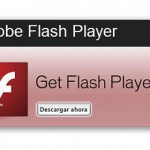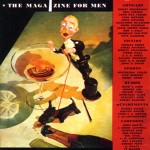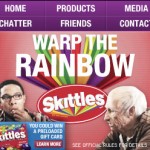The war is on … HTML5 vs Flash. Working in advertising you would think by now I would be used to hype. But I’ve been working with technology longer than I’ve been working in advertising. And in the land of technology, hype is definitely nothing new either. From Windows 7 being the savior of mankind to Java revolutionizing the we live our lives to HTML 5 being the definitive answer to all our future media needs! Its all hype, I don’t believe in any of it. But not that that stopped from learning about Windows, Java and, now, HTML 5.
Touted as being the savior from Flash and championed by none other than Steve Jobs himself, lately I’ve been inundated in the death of Flash. Whatever. Flash has dominated Internet Video for about 6 or 7 years. Why? Because it works! Pure and simple, any Internet browser you use to watch video can use, play and manipulate Flash. True, that pesky “plug-in” can be annoying and “older” technology adopters degenerate into a panic when they get the “Download current Flash player” message on their IE5, but beyond that, I really don’t understand why all of a sudden Flash is such a bad thing!
Sniff! Sniff! I think I can smell our old friend Mr. Hype behind all this! The world has too great obsessions, technology and war. What can be better than a technology war! I’m not reading about this in Information Week or Adage. The battle between Google and Apple, Flash and HTML 5, etc., is news in the Wall Street Journal and Financial Times. Not a good thing. Now the CEOS and Marketing VPs feel compelled to take sides…sides in a battle they know very little, if anything, about. The “techies”, the guys who are supposed to know the difference between h.264 and “Ogg”, are drowned out by the siren of the wielders of the purse strings. “We heard flash is dead, can we an HTML 5 player please, expecting, of course, that not will the vaunted HTML 5 play as well flash video, but even BETTER! Better being subjective, but sooner or later, being put in bean counter terminology for either saving or making money. But this assumption has absolutely no basis on anything other than what they read in the latest New York Times technology page.
in the Wall Street Journal and Financial Times. Not a good thing. Now the CEOS and Marketing VPs feel compelled to take sides…sides in a battle they know very little, if anything, about. The “techies”, the guys who are supposed to know the difference between h.264 and “Ogg”, are drowned out by the siren of the wielders of the purse strings. “We heard flash is dead, can we an HTML 5 player please, expecting, of course, that not will the vaunted HTML 5 play as well flash video, but even BETTER! Better being subjective, but sooner or later, being put in bean counter terminology for either saving or making money. But this assumption has absolutely no basis on anything other than what they read in the latest New York Times technology page.
I write about technology and advertising in this blog. How the two work together, fit together, live together to bring value, entertainment and purpose into our lives. Ok, that’s a bit much, but you get the general idea. Not that the new technology wars were brought on or only effect the world of advertising. These “techno” wars go well beyond that. But advertising has always played a vital roll in the development of media technologies and the public, going all the way back to early radio. I like to think of it as the oil that greases the media wheels for, when you get right down to it, even free media is in its own way, “commercial”.
Advertising is a form of communication intended to persuade an audience (viewers, readers or listeners) to purchase or take some action upon products, ideals, or services.
 And whether we like it or not, as the Internet redefines “traditional” media, its going to redefine the “traditional” commercial, as well, whether it uses HTML 5, or Flash or snake oil. The leaders, the visionaries, the creative minds of the media world need to focus on those new definitions. Its the technologist’s job to find and use the right technologies to make those new definitions work. “Hype” is now and always will be a part of our way of life, but let the hype follow the flow of the ideas and not the hammer and nails that put them together. Different tools do different jobs in different ways, that’s all. Some tools are better at some jobs than others. But, for the most part, any tool does much better without the hype.
And whether we like it or not, as the Internet redefines “traditional” media, its going to redefine the “traditional” commercial, as well, whether it uses HTML 5, or Flash or snake oil. The leaders, the visionaries, the creative minds of the media world need to focus on those new definitions. Its the technologist’s job to find and use the right technologies to make those new definitions work. “Hype” is now and always will be a part of our way of life, but let the hype follow the flow of the ideas and not the hammer and nails that put them together. Different tools do different jobs in different ways, that’s all. Some tools are better at some jobs than others. But, for the most part, any tool does much better without the hype.
 and I’m sure designers feel the same way about developers. Its just the nature of the business that these diverse poles, although in desperate need of each other, still follow “ne’er the twain shall meet”. But they do meet. Somewhere along the line, in anything you see on the Internet that can be considered “professional”, is the blending of the two. Even in cutting edge agencies, this is usually attributed to some kind of magic that bridges the gulf between the creative and the functional.
and I’m sure designers feel the same way about developers. Its just the nature of the business that these diverse poles, although in desperate need of each other, still follow “ne’er the twain shall meet”. But they do meet. Somewhere along the line, in anything you see on the Internet that can be considered “professional”, is the blending of the two. Even in cutting edge agencies, this is usually attributed to some kind of magic that bridges the gulf between the creative and the functional.  Everything you see on the Internet (and most technologies since the radio) are electronic impulses doing their thing and our uncanny ability to turn that into actual communication; sights and sounds that have meaning to human ears, eyes and brains. This is truly remarkable since there is a mighty big leap between a random electron and bringing a smile to someone’s face. Without that magic, we might as well be reading text in black and white, one page at a time. Where does that magic come from?
Everything you see on the Internet (and most technologies since the radio) are electronic impulses doing their thing and our uncanny ability to turn that into actual communication; sights and sounds that have meaning to human ears, eyes and brains. This is truly remarkable since there is a mighty big leap between a random electron and bringing a smile to someone’s face. Without that magic, we might as well be reading text in black and white, one page at a time. Where does that magic come from? to find out exactly. Lo and behold, there was no entry. So I added
to find out exactly. Lo and behold, there was no entry. So I added For some reason there is still the “great divide” between “technology” (hard-core nerds and weenies) and “creatives” (soft-core nerds and weenies). But that great divide becomes a just bit more narrow every time a “creative” learns how to build an actionscript class or a techie adjusts a css property just ever so to get the right “effect”.
For some reason there is still the “great divide” between “technology” (hard-core nerds and weenies) and “creatives” (soft-core nerds and weenies). But that great divide becomes a just bit more narrow every time a “creative” learns how to build an actionscript class or a techie adjusts a css property just ever so to get the right “effect”. and “User Experience”
and “User Experience” were completely separate terms, seldom if ever used together, much less in the same breathe. But times are “a-changing” along with the vernacular and apparently the job specs.
were completely separate terms, seldom if ever used together, much less in the same breathe. But times are “a-changing” along with the vernacular and apparently the job specs.
 Ok, instead of the kids being across the street or down the block or in a neighborhood that had its own name, they could be anywhere in the world. He could be chatting it up and planning strategy with kids his own age or full-grown adults, all insid this ultimate fantasy come alive on a video screen. Is this leading to a more open, broad-minded world where my son will grow up and be influenced by lives and personalities thousands of miles away in some cases? Does this mean he’ll learn more, know more and do more by the time he finishes high school than I have yet to do in my entire lifetime? That would be nice, but something tells me it simply not that simple. My son my be interacting with people from all over the world but in reality he’s interacting with World of WarCraft and all the technologies that bring this wonder to millions. Its the technology that’s becoming a part of their lives…not each other.
Ok, instead of the kids being across the street or down the block or in a neighborhood that had its own name, they could be anywhere in the world. He could be chatting it up and planning strategy with kids his own age or full-grown adults, all insid this ultimate fantasy come alive on a video screen. Is this leading to a more open, broad-minded world where my son will grow up and be influenced by lives and personalities thousands of miles away in some cases? Does this mean he’ll learn more, know more and do more by the time he finishes high school than I have yet to do in my entire lifetime? That would be nice, but something tells me it simply not that simple. My son my be interacting with people from all over the world but in reality he’s interacting with World of WarCraft and all the technologies that bring this wonder to millions. Its the technology that’s becoming a part of their lives…not each other. Of course, that alone can mean many things to many people. But my guess is the magazine has lasted so long (..and apparently still going strong) because that’s something all young men (and most older ones) would truly want to be. Including me. And, although I’ve only read one article (on a company called Psyop but more on that later), I was thoroughly impressed.
Of course, that alone can mean many things to many people. But my guess is the magazine has lasted so long (..and apparently still going strong) because that’s something all young men (and most older ones) would truly want to be. Including me. And, although I’ve only read one article (on a company called Psyop but more on that later), I was thoroughly impressed. Its no coincidence they are in a position to go to a David Granger (Esquire’s E-C) and offer him a chance to leap out there on the “bleeding” edge of trendy. Its as trendy as you can get. And from my understanding of Esquire, that’s what has been keeping that particular boat floating for almost 80 years. Especially, in these days of publishing in “crisis”. Something tells me, Mr. Granger “gets it”.
Its no coincidence they are in a position to go to a David Granger (Esquire’s E-C) and offer him a chance to leap out there on the “bleeding” edge of trendy. Its as trendy as you can get. And from my understanding of Esquire, that’s what has been keeping that particular boat floating for almost 80 years. Especially, in these days of publishing in “crisis”. Something tells me, Mr. Granger “gets it”. quite as beguiling, but I’m betting the one with Gillian Jacobs walking around in her enormous bathroom with only her Brooks Brothers shirt on will garner a fair amount of “cyber” buzz. And if Brooks Bothers is paying any attention (probably not) , they should be doing their best to “sponsor” the next episode. In fact, Mr. Granger should be lining up sponsors left and right just on the “hype” factor alone. The intentions are clearly to go “viral” perhaps even landing on the Ad Age Viral Video Chart. The world of media is being rewritten and we are here to see it.
quite as beguiling, but I’m betting the one with Gillian Jacobs walking around in her enormous bathroom with only her Brooks Brothers shirt on will garner a fair amount of “cyber” buzz. And if Brooks Bothers is paying any attention (probably not) , they should be doing their best to “sponsor” the next episode. In fact, Mr. Granger should be lining up sponsors left and right just on the “hype” factor alone. The intentions are clearly to go “viral” perhaps even landing on the Ad Age Viral Video Chart. The world of media is being rewritten and we are here to see it. thing, and enjoyed it. Up to now, I had never heard of the guy and doubt that I ever would have. But not only do I remember the name, I’m writing it down. In one fell swoop, I was impressed, entertained and educated all at once. And I still haven’t read any of the articles! And you’re telling me this ISN’T the future?! Next up…”Holo-mercials”!
thing, and enjoyed it. Up to now, I had never heard of the guy and doubt that I ever would have. But not only do I remember the name, I’m writing it down. In one fell swoop, I was impressed, entertained and educated all at once. And I still haven’t read any of the articles! And you’re telling me this ISN’T the future?! Next up…”Holo-mercials”! But not in the usual venues where one would expect to here the term frequently, video gaming, extreme sports, or rock concerts. Its seems to be becoming a powerful buzzward in economic theory and, as a result, advertising. Economic theory? Yes economic theory straight from Harvard Business School of all places. Check out the blog “The Awesomeness Manifesto” (
But not in the usual venues where one would expect to here the term frequently, video gaming, extreme sports, or rock concerts. Its seems to be becoming a powerful buzzward in economic theory and, as a result, advertising. Economic theory? Yes economic theory straight from Harvard Business School of all places. Check out the blog “The Awesomeness Manifesto” ( 
 The buggy wheel maker is replaced by the tire manufacturer, the buggy driver becomes the taxi driver, the horse retires to the stud farm or the glue factory; disruptive but not cataclysmic (at least not for humans).
The buggy wheel maker is replaced by the tire manufacturer, the buggy driver becomes the taxi driver, the horse retires to the stud farm or the glue factory; disruptive but not cataclysmic (at least not for humans). Riding a peak of “innovative” products that just keep right on selling regardless of the tough economic times. Products I might add that aren’t exactly “cheap”. I put the term “innovative” in quotes because according to Mr. Haque: ”
Riding a peak of “innovative” products that just keep right on selling regardless of the tough economic times. Products I might add that aren’t exactly “cheap”. I put the term “innovative” in quotes because according to Mr. Haque: ”

 I espoused the virtues of Internet “Real Estate”. In order to grab more of the public’s eye in cyberspace you have to go to where they go, i.e., the web sites with the most user density. By establishing relationships with sites like Google, Yahoo, MySpace, etc., you simply stand a better chance of getting the eyeballs you need, to see the things you want them to see.
I espoused the virtues of Internet “Real Estate”. In order to grab more of the public’s eye in cyberspace you have to go to where they go, i.e., the web sites with the most user density. By establishing relationships with sites like Google, Yahoo, MySpace, etc., you simply stand a better chance of getting the eyeballs you need, to see the things you want them to see. technology pundits since “modern” advertising was invented. There’s a reason why every healthy red blooded American for the last 4 or 5 generations knows “they melt in your mouth, not in your hands!” How many ad campaigns you know have lasted for over 65 years (MMs were introduced to American GIs during World War II precisely because it was chocolate that melted in your mouth not in your hands).
technology pundits since “modern” advertising was invented. There’s a reason why every healthy red blooded American for the last 4 or 5 generations knows “they melt in your mouth, not in your hands!” How many ad campaigns you know have lasted for over 65 years (MMs were introduced to American GIs during World War II precisely because it was chocolate that melted in your mouth not in your hands).
